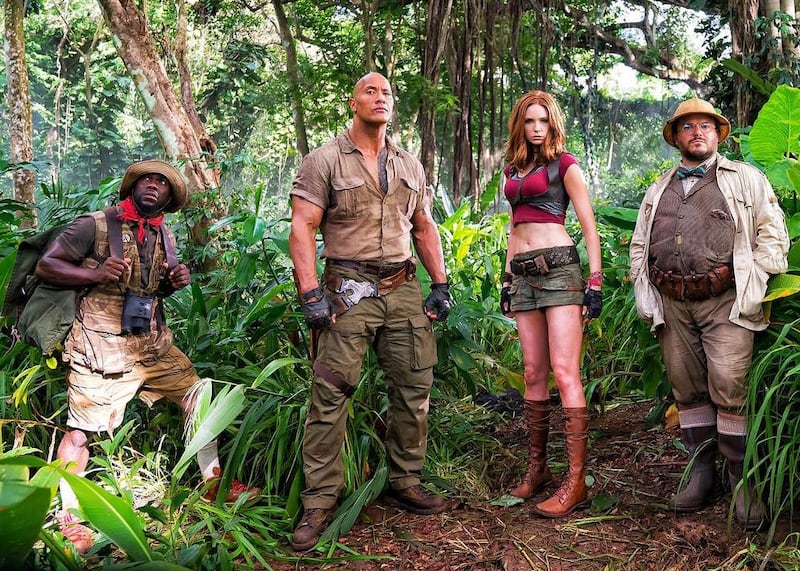When the world’s largest manufacturer of sugary soft-drinks makes and bottles its signature product around the world, the first thing it needs to do is to purify and adjust the local water supply. The drink is, after all, mostly water, so delivering a uniform and universally known taste means that minerals and trace elements need to be added (or subtracted) to whatever comes out of the tap.
The story goes that at some point in the process, some clever executive realised that before the sugary syrup is added to the modified water and turned into the world-famous drink, what the company produces is, essentially, bottled water. And because people all over the world seem to be willing to pay a fair amount of money for bottled water, the executive proposed that the company expand its offerings of sugary soft drinks and sugar-free soft drinks to include the plain old water that it’s already making.
The result is that the company now takes water from whatever local water source it can, fiddles with it a bit, puts it into a fancy plastic bottle with some attractive labelling, and makes an absolute fortune selling something it gets at almost zero cost.
Getting something for free is really the key to any good business. It’s the extreme version of the reliable adage about “buying low” and then “selling high”.
In the entertainment business – which is the only business I know anything about – it’s hard to find things that are free, or even close. Movie producers used to lurk around international book fairs looking for overlooked novels that had cinematic potential. That worked until enterprising literary agents caught on and began auctioning off the movie rights to books that were still in galley form or, even more enterprisingly, still being written. Television producers, screenwriters, even art directors, are aware of the value of their work. Pretty much all of the key players in Hollywood have come up with ways to squeeze a little money out of the system. Writers get royalties and residual payments. Directors get a piece of the profits of a hit television series or a movie that spawns a sequel. We call it “getting a taste” – as in: “They’re rebooting a television series I worked on, and including a couple of characters that I created, so I will be getting a taste of that.”
When Sony releases its instalment of the revamped Jumanji picture – this one starring Dwayne "The Rock" Johnson, Jack Black, Kevin Hart and Karen Gillan – it will also release a blizzard of payments to most of the creative team behind the first Jumanji movie, which came out 22 years ago.
One of the most popular – and, by the way, terrific – television series on the air now is Fargo, which appears in the United States on the FX cable channel. Its first episodes were very loosely based on the 1996 film of the same name, but as it approaches its third season, the stories and characters are entirely new. Nevertheless, the creative principals behind the original film find payments in their postboxes on a regular basis.
And when Blade Runner 2049 is completed later this year – 35 years after the original – it's a fair bet that some of the personnel who worked on the first film that the studio now needs to compensate have been dead for years. Dead or alive, they still get their taste.
As movie studios and television networks scour the landscape for new material, each possible project brings with it a tangled web of copyright issues and royalty requirements. Nothing, in Hollywood anyway, is as free as water that comes from the tap.
The only group left out of this bonanza – aside from the actors, who are paid enough anyway – are the musicians. If you use a recognisable piece of music in a television or film, you have to pay a fairly large sum to the original composer and performer. But there are dozens of talented music editors who will come up with something that sounds almost like a well-known hit song, or comes very close to replicating a specific style or signature hook, without crossing the line into must-pay-the-original-artist territory, which as we all know can be very expensive territory indeed. I’ve worked with studio composers who can write and record a song overnight that sounds almost identical to a current chart-topping hit, with enough different notes and altered chords to keep the lawyers at bay.
Hollywood isn’t the only place where people haggle over royalties. The large beverage maker that figured out how to turn the nearly-zero cost local water into high-margin fancy water eventually faced the same problem. Municipal water services didn’t like seeing their product gussied up for free. These days, when the company starts to siphon up the reservoirs, the local governments are close behind with demands for payments and fees and extra charges. There’s no way to copyright a water supply, but there is, apparently, a way to make sure that no matter what you do to the flavour of the water, someone still gets a taste.
Rob Long is a writer and producer in Los Angeles
On Twitter: @rcbl





